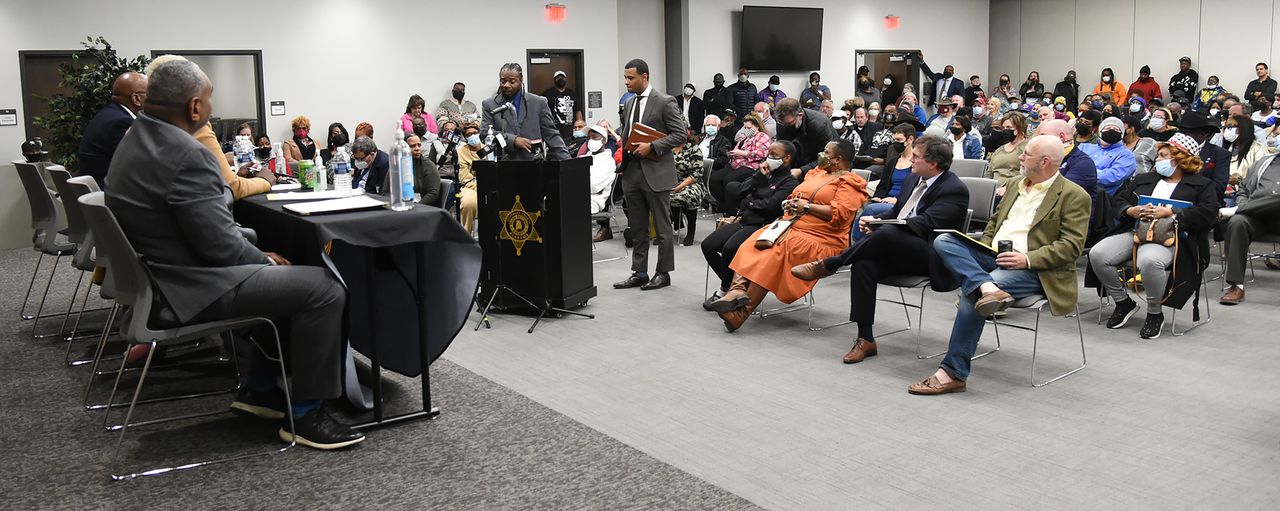SCOTUS to hear Alabama cases of police ‘piracy’
This is an opinion column
It shouldn’t be easy for the government to take your belongings.
I thought we could agree on that.
But in Alabama, police and the state can take cars and property from people who have not committed crimes, who have not been charged with crimes, who have not even been to the scene of a crime. And to get their stuff back? Well they have to fight for it.
In fact, the South stands pretty much all by itself in arguing that the government doesn’t need probable cause hearings to see if the property should be taken. Instead, our courts and elected officials say it will all work out. You’ll get your car back if you follow their process.
Even if it takes months. Or years.
Now, the question of whether that practice is constitutional is headed to the U.S. Supreme Court.
It’s really a question of policing for profit, how Alabama — and we’re not alone — relies on fines and forfeitures to fund everything from town police departments to the state general fund. Brookside was a poster child for that.
I vividly remember Birmingham lawyer Allan Armstrong standing last February in a town hall meeting packed with people who said they had been harmed by rapacious policing in Brookside, a town rebuked by cops and DAs and state leaders on both sides of the aisle
Armstrong said Brookside was a “primary example” of policing for profit in Alabama, but he didn’t stop there.
“One other thing, while I’ve got it on my mind,” he said. “I appreciate the attorney general’s office being here … but I also want to bring to attention that the attorney general’s office also defends policing for profit. So if we can bring in a little investigation into the attorney general’s office …”
The rest of his words were drowned out by applause and cheers and assorted “amens.”
“That’s what we pray for,” a woman said. “Things like this.”
If Brookside taught us anything, it is that justice as a revenue source is far from just.
A town hall meeting on Brookside policing, Feb. 1, 2022. Allan Armstrong is front row, right. (Joe Songer for al.com).Joe Songer
Armstrong was talking then about seizures, or “piracy,” as he now calls it. He and other lawyers filed suits over property taken from people who were never charged. Those cases were combined, naming Alabama Attorney General Steve Marshall as a main defendant.
This week the U.S. Supreme Court agreed to hear those cases of Halima Tariffa Culley and Lena Sutton, and to ultimately decide whether such owners have a right to a probable cause hearing before a city or state can take their property.
Culley’s adult son was driving her 2015 Nissan Altima in 2019 when he was arrested in Satsuma, a town just north of Mobile, with a small amount of marijuana. He was sentenced to probation and community service, but police took his mom’s car, and kept it for 20 months. She was not charged.
Police in Leesburg, a small town near Gadsden, took Sutton’s car in 2018. Even though she wasn’t around the drug arrest of her roommate and she was not charged, either. Her car was taken for a year.
Culley’s original lawsuit spelled out the problem.
“This case is not about the initial seizure, or the ultimate decision at trial in civil forfeiture actions. It is about the fact that the state (and cities) … seizes vehicles and other property and retains custody of it while the civil forfeiture action, which could take months, if not years to resolve, is pending.”
Yet the 11th U.S. Circuit Court of Appeals – standing on an island – didn’t see that as a problem. It held that no hearing is needed before a seizure, because a forfeiture procedure alone is enough to ensure due process. The court acknowledged that every other circuit disagrees.
“The Eleventh Circuit itself recognizes that it is the only circuit holding that the civil asset forfeiture proceeding itself ratifies due process as to the pretrial restraint of assets,” it said.
So we’re all alone down here. In this place that claims to defend its rights.
Marshall’s office said in a statement that Alabama provides several ways for people in Sutton and Culley’s position to regain their property, but those women did not use them.
“My office successfully defended the constitutionality of Alabama’s laws before two district courts and the Eleventh Circuit Court of Appeals,” he said in the statement. “I am confident that after the U.S. Supreme Court reviews the merits of this case, the Court will reach a similar conclusion.”
Armstrong is eager for the hearing, too.
“They are wholeheartedly pushing to get those assets,” Armstrong said. “It’s hundreds of millions of dollars nationwide that are seized.”
The Supreme Court has agreed to hear the case.
Until then, just remember it is the state of Alabama’s position that it can take your stuff for a crime you did not commit. The burden is on you to get it back. And it will fight you for it.
Oh. And the AG’s office never raised an eyebrow about Brookside.
John Archibald is a Pulitzer Prize-winning columnist for AL.com.
